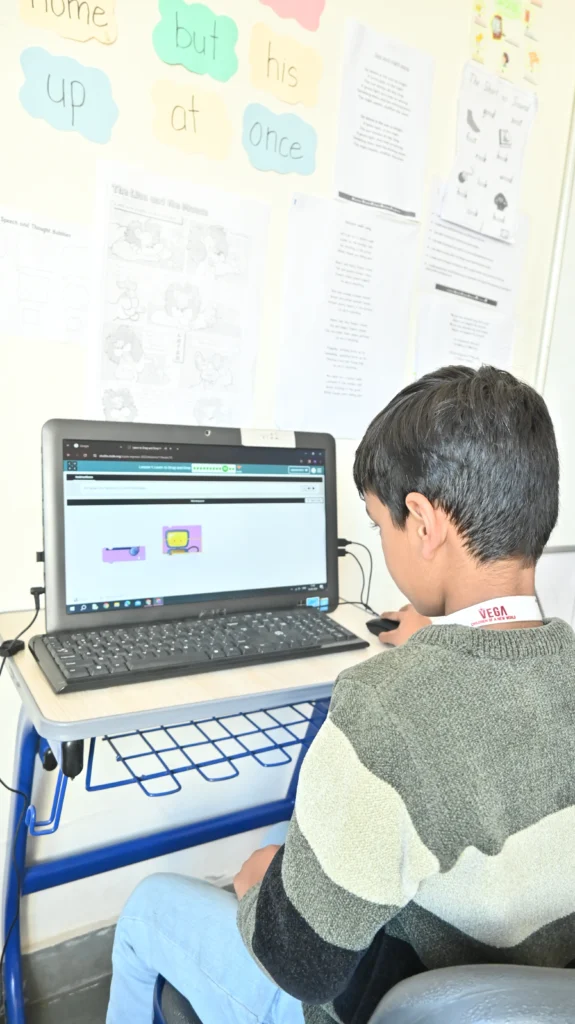Children are growing up surrounded by smartphones, tablets, and the internet in today’s technologically advanced society. Digital tools have become an essential part of their everyday lives, from social media and gaming to online learning systems. These platforms present problems like cyberbullying, false information, and privacy issues even while they provide countless chances for fun and education
Because of this, digital literacy—the capacity to utilize technology in a responsible, safe, and efficient manner—is now required. Preparing children to navigate the digital age with awareness and confidence requires teaching them how to be ethical online citizens.
- Comprehending Digital Literacy
Being able to use a gadget and access the internet is only one aspect of digital literacy. It entails knowing how to assess information, adhere to internet protocol, safeguard personal information, and utilize technology responsibly. Youngsters need to be taught to recognize risks, discern between trustworthy and untrustworthy sources, and comprehend the repercussions of their online behavior.
- Encouraging Internet Safety
Teaching children how to stay safe online is one of the most crucial components of digital literacy. Youngsters should be taught how to create secure passwords, refrain from disclosing private information to strangers, and spot dubious links or websites. In order to help children realize that the digital world is not as private as it may seem, parents and educators can start age-appropriate conversations on online privacy. Building trust through promoting candid discussions about possible dangers also makes sure that kids feel free to ask for assistance when they are in danger.
- Developing the Ability to Think Critically
Digital literacy is centered on critical thinking in a time where false information travels swiftly. Children must be taught to challenge what they read online, check information from reliable sources, and steer clear of scams and misleading storylines. For instance, kids should be taught to verify news reports before disseminating them and to realize that not all information on social media is accurate. Children who develop their critical thinking abilities are better equipped to make decisions rather than absorbing information from the internet at face value.

- Promoting Civil Conduct on the Internet
Understanding digital etiquette is another aspect of being a responsible online citizen. Whether via conversations, emails, or social media, kids need to understand the value of treating people with respect. Issues like cyberbullying can be avoided with lessons on kindness, empathy, and the power of words online. Children can develop deep connections and keep a polite online persona by being encouraged to engage in constructive digital conversations.
- Finding Equilibrium in Screen Time
Digital literacy stresses the value of balance while preparing children to utilize technology responsibly. Overuse of screens can affect one’s academic achievement, emotional health, and physical health. A well-rounded lifestyle is produced by teaching kids to set appropriate boundaries, such as taking breaks, giving offline activities priority, and participating in interests outside of screens. Parents can encourage this by using technology responsibly themselves.
- The Function of Schools and Parents
Families and educators share responsibility for fostering digital literacy. Lessons on digital literacy can be incorporated into the curriculum to teach pupils about responsible communication, digital footprints, and online safety. By keeping an eye on usage, having frequent conversations about internet experiences, and helping children make deliberate decisions, parents may help their children learn these principles at home. Working together guarantees that kids develop the knowledge and abilities necessary to succeed in the digital age.
In the modern world, digital literacy is more than just a talent; it is a requirement. The benefits and problems of the internet world will change along with technology. We enable kids to grow up to be responsible digital citizens by teaching them how to use technology responsibly, think critically, and interact politely.
Together, communities, educators, and parents can teach children how to constructively influence the digital world in addition to navigating it. Giving the next generation digital literacy skills guarantees that they will be ready for a day when the online and offline worlds coexist together.
Vega Schools offers holistic education to children in Delhi NCR and is rated among the top Schools in Gurgaon. Its modern infrastructure, facilities, and experienced teachers are a big asset to the learning & development of students, be it for Nursery, Primary or Senior children making Vega Schools the best schools in Gurgaon. For information about admission please visit the Vega Schools campuses in Sector 48 and Sector 76 Gurugram.
